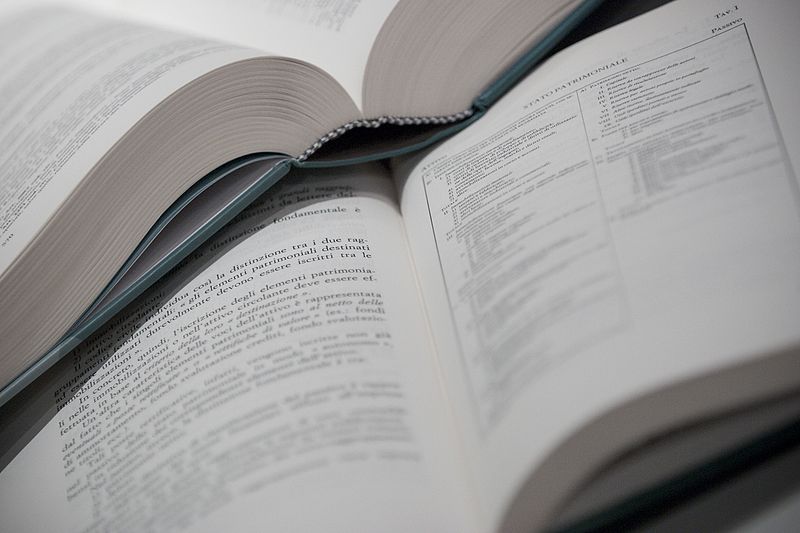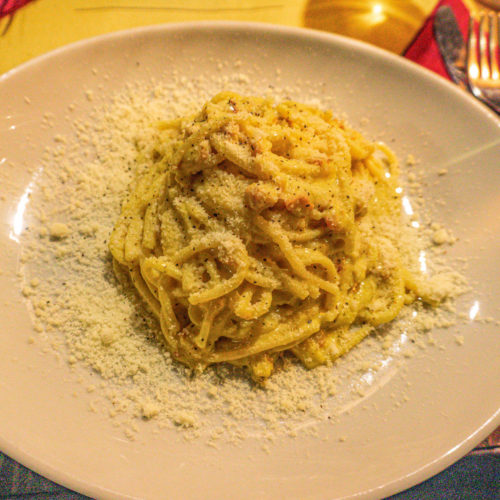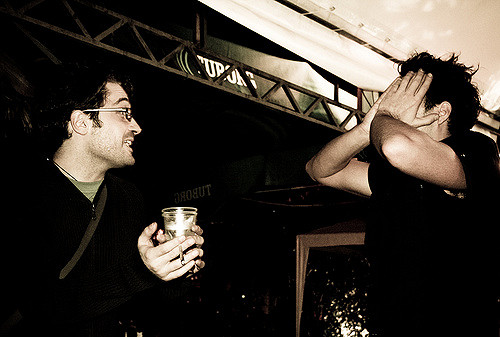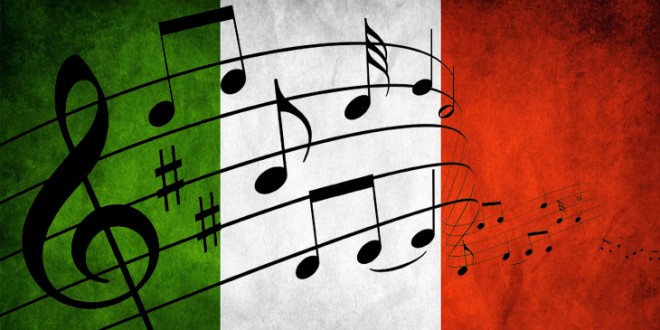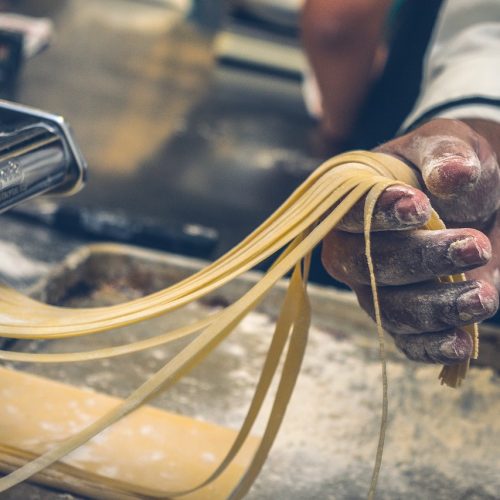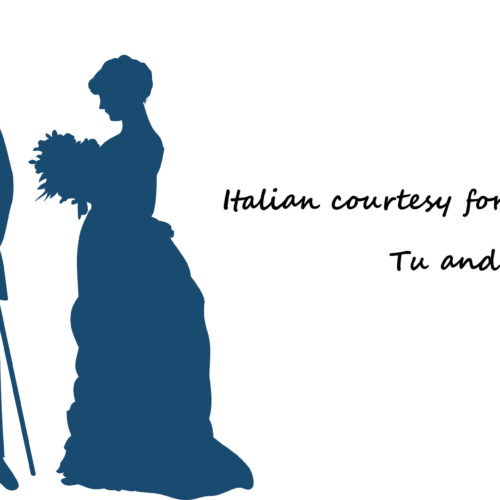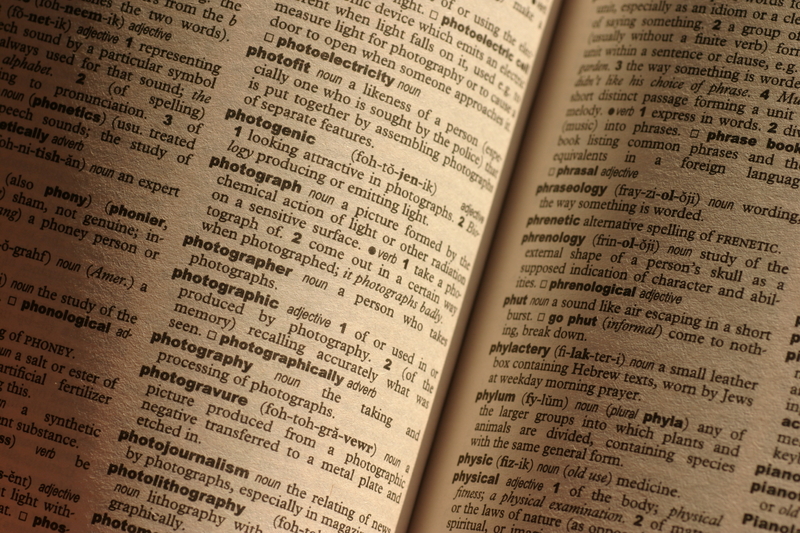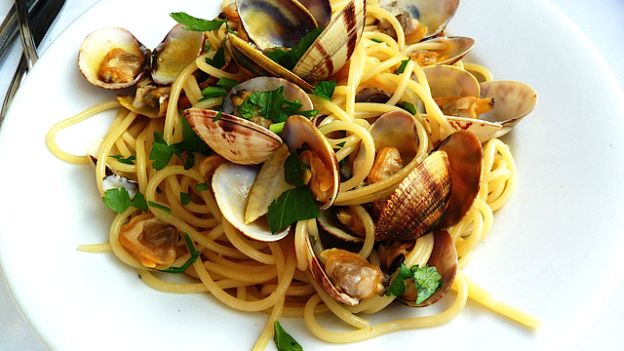The Italian language has two future tenses – il Futuro Semplice and il Futuro Composto while English has only one future tense.
IL FUTURO SEMPLICE
The simple future tense (il Futuro Semplice) in Italian is used to talk about future actions.
Stasera telefonero’ alla mia amica. Tonight I’ll call my friend.
Mio figlio fara’ l’esame domani. My son will take an exam tomorrow.
Stasera parlero’ con mia moglie. This evening I will talk with my wife.
The future tense is formed by adding endings to the verbs. There are two types of verbs, regular and irregular and they follow different patterns to form present tense.
Regular Verbs
All regular verbs drop final –e from the infinitive and add the endings -o’, -ai, a’, -emo, -ete, -anno. In regular verbs ending in –are the a of the infinitive changes to e. ( Notare Studiare e Mangiare cambiano la a con la e mentre Partire rimane inalterato ).
| Studiare
to study |
Mangiare
to eat |
Partire
to leave |
|
| Io | Studiero’ | Mangero’ | Partiro’ |
| Tu | Studierai | Mangerai | Partirai |
| Lui/Lei | Studiera’ | Mangera’ | Partira’ |
| Noi | Studieremo | Mangeremo | Partiremo |
| Voi | Studierete | Mangerete | Partirete |
| Loro | Studieranno | Mangeranno | Partiranno |
Verbs ending in -care and -gare add an h to the future tense stem after the c or g in order to retain the hard sound. For example: pubblicare (to publish) becomes Io pubblicherò.
Verbs ending in -ciare and -giare drop the i from the ending (i.e. Mangiare (to eat), Io mangerò)
Irregular Verbs
There are twelve common verbs which follow irregular patterns in future tense. The most important irregular verbs are avere and essere because in addition to being frequently used in their own right, they are used as auxiliary verbs to form il Futuro Composto.
| Avere
to have |
Essere
to be |
Venire
to come |
Vedere to see |
Andare
to go |
Dare
to give |
|
| avrò | sarò | verro’ | vedro’ | andro’ | daro’ | |
| avrai | sarai | verrai | vedrai | andrai | darai | |
| avrà | sarà | verra’ | vedra’ | andra’ | dara’ | |
| avremo | saremo | verremo | vedremo | andremo | daremo | |
| avrete | sarete | verrete | vedrete | andrete | darete | |
| avranno | saranno | verranno | vedranno | andranno | daranno | |
| Fare
to do/to make |
Sapere
to know |
Stare
to stay/to be |
Potere
can |
Dovere
must |
Volere
may |
|
| faro’ | sapro’ | staro’ | potro’ | dovro’ | vorro’ | |
| farai | saprai | starai | portrai | dovrai | vorrai | |
| fara’ | sapra’ | stara’ | potra’ | dovra’ | vorra’ | |
| faremo | sapremo | staremo | potremmo | dovremo | vorremo | |
| farete | saprete | starete | potrete | dovrete | vorrete | |
| faranno | sapranno | staranno | potranno | dovranno | vorranno |
IL FUTURO COMPOSTO
This future tense describes two actions that will happened in the future, first one as if it were already happened and second one as if it will happened.
Quando sarai arrivato mi chiamerai. When you arrive call me.
Quando avro’ finito il colloquio andro’ a pranzo. When I finish an interview I will have lunch.
There is no equivalent of il futuro compost in English. As shown in the examples above, English uses present tense.
Il futuro composto is formed by two verbs, an auxiliary verb avere or essere in the future form and a past participle of a verb.
Esercizio : Coniugare i verbi al futuro
- Tu ……………………………….. (diventare) molto bella.
- Gli studenti non …………………..……… (volere) studiare la lezione
- Loro non ………………………………. (essere) interessati
- Io ……………………………… (preferire) mangiare la pizza
- A me non ……………………………… (piacere)
- Giovanni ………………………..… (vestire ) in modo elegante
- Paolo ………………………..….. (andare) al concerto
- Noi……………………… (suonare) in un gruppo rock
- Noi ……………………..(cucinare) gli spaghetti al pomodoro
- Io ………………………(andare) a trovare Luigi
You can find the correct answers to the exercise here: Italian Past Tense.

